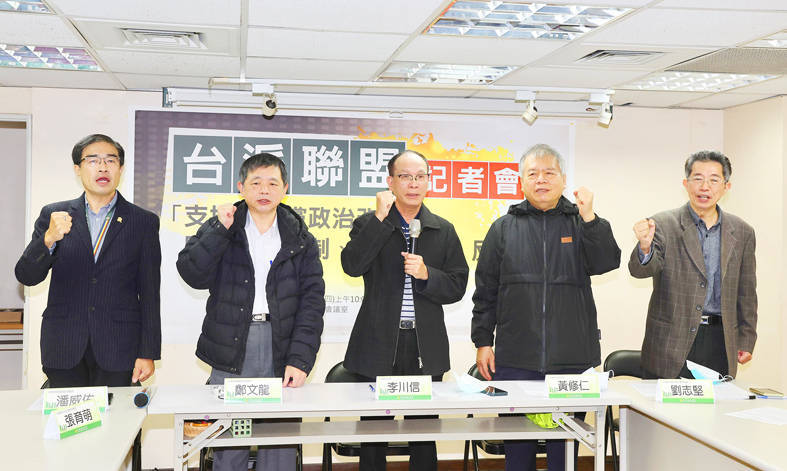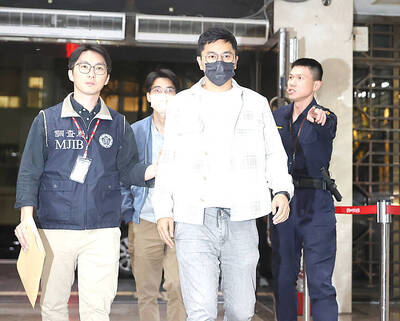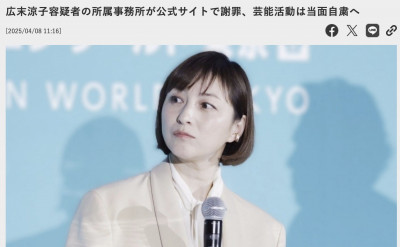《TAIPEI TIMES》 Pro-Taiwan groups laud conscription plan

Taiwan Jury Association founder Jerry Cheng, second left, Taiwan Society chairman Lee Chuan-hsin, center, and others hold up their fists during a news conference in Taipei yesterday. Photo: CNA
By Jason Pan / Staff reporter
Pro-Taiwan groups at an event in Taipei yesterday endorsed the government’s plans to restore compulsory military service to one year and to raise the basic pay for soldiers.
However, they urged the government to enact stronger curbs to bar people who have been involved in organized crime from running for public office.
Taiwan Society chairman Lee Chuan-hsin (李川信) lauded President Tsai Ing-wen (蔡英文) for making the “difficult” decision to restore the one-year conscription period, after the administration of her predecessor, Ma Ying-jeou (馬英九), in 2013 shortened the term to four months.
Lee, who heads the Pro-Taiwan Alliance, was joined by senior members of other organizations, who jointly urged the government to rein in politicians’ organized crime ties by setting standards for parties to nominate candidates guided by democratic principles.
“We support the new rules for the military set by the Ministry of National Defense,” Lee said, adding that the rules are a step in the right direction to tackle a shortage of recruits.
If a war breaks out, “Taiwanese must be ready to stand up to defend their homeland,” he said.
“We have to show the world that we have the resolve to defend Taiwan. If we do not, other countries would not help defend Taiwan itself” if it is attacked, Lee said.
Taiwanese should learn from the Russian invasion of Ukraine, Lee said, adding that after Kyiv’s allies saw how determined Ukrainians are to defend their country, they were willing to send supplies and weapons to Ukraine.
Taiwan Jury Association founder Jerry Cheng (鄭文龍) said the extension of the conscription period was necessary, as “China has vowed to invade Taiwan.”
“We must normalize our military... If we do not do it, other countries will not believe that Taiwan is able to defend itself,” he said.
Cheng lauded Tsai for the plan to raise the basic pay for soldiers to match the monthly minimum wage of NT$26,400.
The Executive Yuan reportedly wanted to keep compensation for soldiers of lower ranks and those undergoing training as low as NT$15,000 per month, but Tsai vetoed the plan and instead ordered that they receive at least the same as minimum wage earners, Cheng said.
“We must praise Tsai for this; it is correct to do it this way,” he said, adding that soldiers should receive competitive compensation “similar to private-sector wages.”
“Only then can our military become the strong force that Taiwan needs to defend itself,” he said, adding that underpaid soldiers would be unwilling to fight.
Before Taiwan became a democracy, the party-state led by the Chinese Nationalist Party (KMT) only paid soldiers NT$4,000 to NT$6,000 a month, he said.
Sharing a story from when he was serving in the military, Cheng said that a fellow soldier once came to him and told him that wanted to desert.
“When I asked him why, he said that his wife had recently given birth and he had no money to buy food for his family,” Cheng said.
“In the old days, when the government treated soldiers so harshly, paying them miserable wages, we did not have strong troops. The soldier wanted to desert because he had had too little money to raise a family,” he said. “Proper pay is important for the Taiwanese military.”
Union of Taiwan Teachers deputy chairman Pan Wei-yiu (潘威佑) said that male university students should be offered the opportunity to finish a four-year degree in three years when signing up for serving in the military for one year after graduation.
The military should also find ways to attract women to serve voluntarily, Pan added.
“Only when we are prepared to fight can we avoid war. If the nation stands united, Taiwan’s armed forces will be strong,” Pan said, calling it the “only guarantee for peace.”
新聞來源:TAIPEI TIMES


















